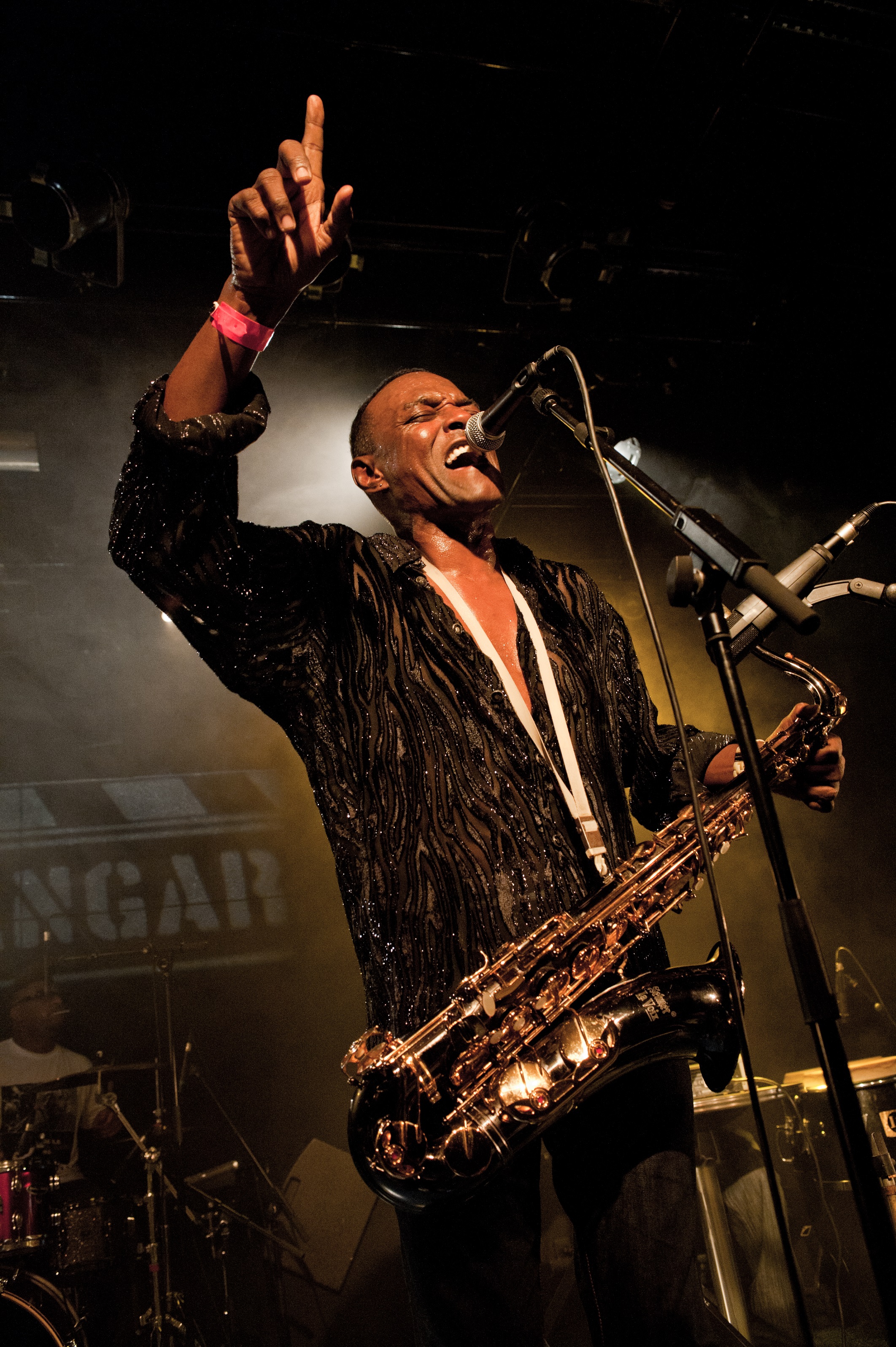Afro-funk and go-go orchestra
Richmond, Virginia
For over 50 years, Richmond saxophonist and bandleader J. Plunky Branch has been at the vanguard of Afro-centric jazz, funk, house music, and go-go, weaving these interrelated musical forms into a forward-looking message of empowerment, positivity, and cultural awareness. At this year’s Richmond Folk Festival, he’s launching a new Afro-funk go-go orchestra that revisits his classic mid-1970s Oneness of Juju band while exploring new musical horizons.
Plunky was born and raised in Richmond, where he was mentored as a teenager by local R&B musicians and music educators, including jazz violinist Joe Kennedy Jr. Acceptance to Columbia University found him leading a popular New York City soul band. “I took my Richmond R&B roots to New York, and I’ve since then brought back to Richmond what I’ve learned in New York, San Francisco, Europe, and West Africa,” he says.
At the same time, Plunky was discovering the avant-garde jazz sounds of Pharaoh Saunders and Archie Shepp, whose work displayed a burgeoning African consciousness. A move to San Francisco in 1969 led to his joining the band of exiled South African pianist and percussionist Ndikho Xaba. “Ndikho taught me that music could be more than entertainment. I learned that music could be a political force and that in African music the beauty is the function that it plays within society,” explains Plunky.
San Francisco is also where Plunky originally formed Juju in 1971. In 1973 the group moved to New York City, where Plunky lived and worked in a loft gallery space run by Ornette Coleman. In 1974, Plunky returned to Richmond, which marked a turning point in the group’s sound. “Audiences in Richmond weren’t as interested in avant-garde African jazz,” he laughs, so the group, now known as Oneness of Juju, combined its African roots with R&B and funk, adding trap drums and vocalist Lady Eka-Ete. Plunky also helped run Virginia’s first black art gallery in Church Hill.
In 1975 Oneness of Juju’s landmark African Rhythms record was released on the pioneering D.C.-based indie label Black Fire. Frequent shows with Chuck Brown meant that Plunky was present at the dawn of go-go music. The band found itself able to move with the times, scoring early ’80s house/disco hits and touring in both Europe and Africa. In recent years, Plunky, who is a two-time recipient of NEA Jazz fellowships, has recorded in an urban/contemporary vein.
At the festival a 16-piece strong Oneness of Juju orchestra will expand on the legacy of African Rhythms with a lineup that includes Lady Eka-Ete, Ghanian drummer Asante (Hugh Masekela, Paul Simon, Fleetwood Mac), and former Wailers guitarist Ras Mel Glover. The timing couldn’t be more perfect as “African Rhythms,” the album’s title track, has recently been reissued, sampled by hip hop greats J Dilla and J. Cole, and even played by the Roots on The Tonight Show when actor Chadwick Boseman appeared to promote the movie Black Panther. Today artists like Plunky are credited with putting the Afrofuturism movement into orbit. “I love that term,” says Plunky, “because we look to make culture and music that combines the past that we come from, with whatever is going on right now, with whatever we can envision for tomorrow.”


